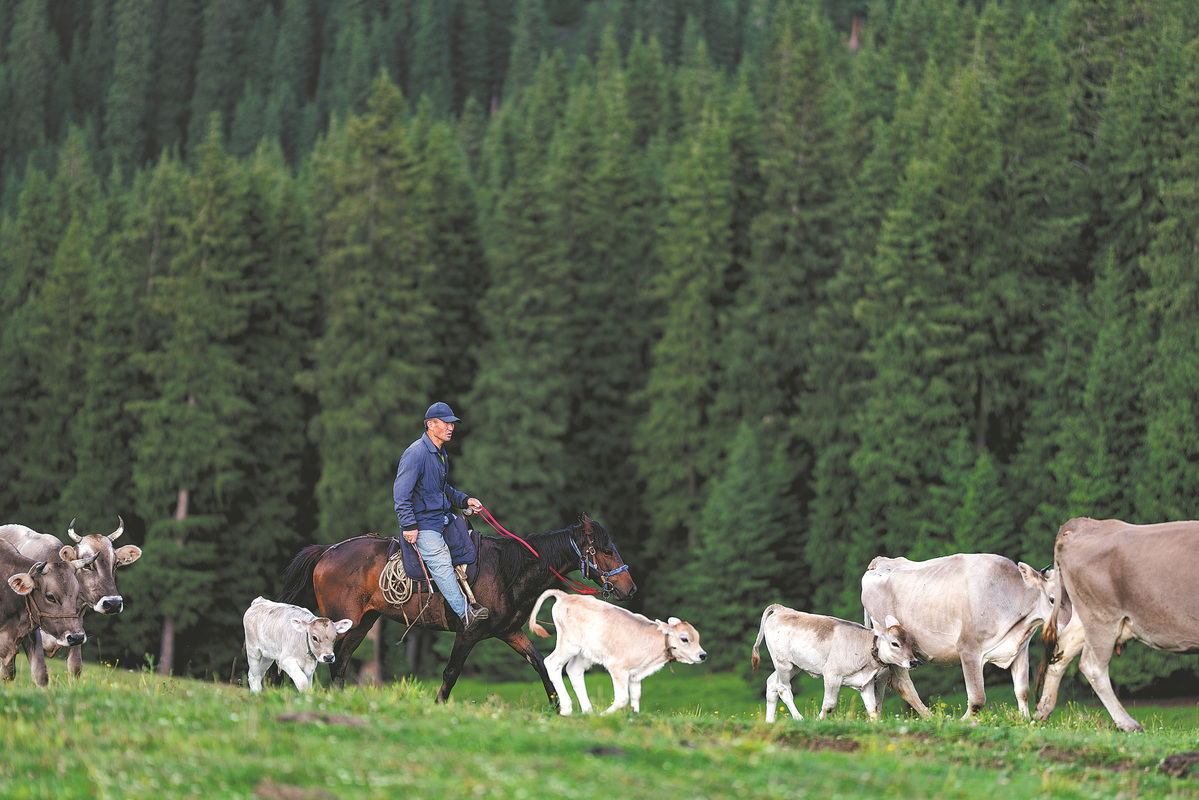Young people take reins of Kazak culture with pride
Traditional herders put their love of horses above all else in Xinjiang's Zhaosu county
By CUI JIA in Zhaosu, Xinjiang | China Daily | Updated: 2024-08-27 09:34

Editor's Note: Improved infrastructure, policy support and funding in areas with large populations of different ethnic groups have transformed people's lives. China Daily presents a series of stories about how China is determined to leave no ethnic group behind in the country's development, while inspiring them to embark on a new journey and make achievements in the new era. This article is the second installment, focusing on traditional Kazak lifestyle.
When Yeran Nurborat rides his horse Smoky back to his family's summer pasture on a stretch of grassland at the foot of a snowcapped mountain in Zhaosu county, Xinjiang Uygur autonomous region, all his troubles go away, he said.
The pasture is only accessible by horse or motorcycle via a steep, narrow path, allowing the 20-year-old herder of the Kazak ethnic group to retain a little oasis preserving his traditional roots.
Those who make the three-hour journey will pass herds of horses wandering freely on the slopes of the mountains and through forests of tall pine trees.
At the end of the uphill journey, the view opens up to reveal a vast green pasture spattered with yellow flowers and snowcapped mountains behind.
When the Yili horses — a special breed of horse found in Xinjiang — raised by Yeran's family gallop the pasture it looks as if they are running on the clouds. It's no wonder why horses in Zhaosu, Ili Kazak autonomous prefecture, are affectionately dubbed "heavenly horses".
"This place may seem like a wonderland to outsiders, but it's just our home, which we cherish," Yeran said while sipping a cup of traditional Kazak milk tea at the wooden house where his family stays during the summer.
Like Yeran, many young people from the Kazak ethnic group in Zhaosu are determined to retain the unbreakable bond they have connecting humans, nature and culture. In recent years, as tourism picks up and the power of social media takes off, these young people want others to learn about herders and what they have learned with each generation.
























